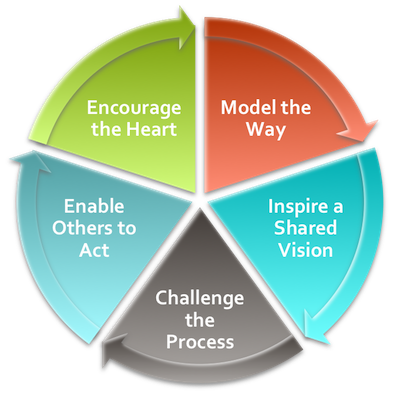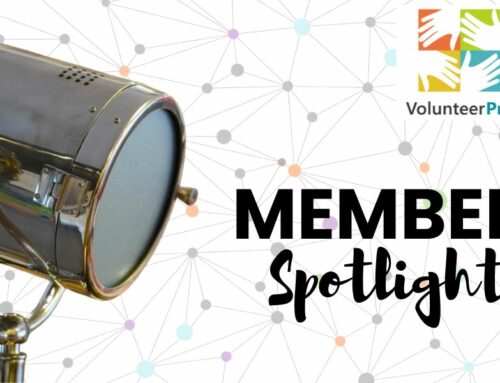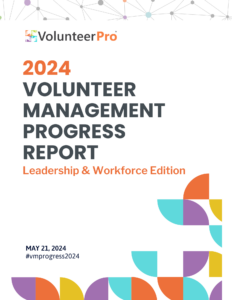This article was originally featured on TobiJohnson.com
Now, more than ever, volunteer administrators are called upon to strengthen their model for leading volunteers and others. The ability to inspire and influence — whether it be volunteers, community partners, executive management, or co-workers — is at the very core of the job and critical to success.
Most information and training available for volunteer coordinators, however, focuses on developing management skills rather than strengthening leadership competencies. Fortunately, plenty of evidence exists about what makes a good leader. In fact, research shows leadership across the private, public, and nonprofit sectors doesn’t differ that much.
Great Leadership Makes a Difference
In their influential book, The Leadership Challenge: How to Make Extraordinary Things Happen in Organizations, James Kouzes & Barry Posner offer a well-researched model for five practices and ten commitments of exemplary leadership. They found that leaders who exhibited these traits were able to bring about notable changes in their organizations.
They discovered leadership wasn’t just a nice, feel-good concept. Excellence in leadership actually made a difference. Below are some of the concrete ways better leadership made an impact across a wide variety of contexts. They are striking in that they are often-cited challenges for volunteer managers.
Better leadership:
- Created higher-performing teams
- Fostered loyalty and greater commitment
- Increased fundraising results and gift levels
- Increased retention and reduced and turnover
- Positively influenced recruitment
An Evidence-based Model for Leading Volunteers in Practice
Below are Kouzes and Posner’s five practices and ten commitments that are associated with better leadership results. With each set I’ve paired ways they might be adapted for practical use when developing your own model for leading volunteers.
- Model the Way
- Clarify and affirm shared values by finding your voice
- Action Item for Volunteer Coordinators: Develop a Philosophy of Volunteer Engagement that describes how and why volunteers are involved, and share it with management and staff.
- Set the example by aligning actions with shared values
- Action Item for Volunteer Coordinators: Work alongside volunteers from time to time to better understand their experiences and needs.
- Clarify and affirm shared values by finding your voice
- Inspire a Shared Vision
- Envision the future by imagining exciting and ennobling possibilities
- Action Item for Volunteer Coordinators: Imagine and describe to others ways volunteers can lead instead of follow at your organization.
- Appeal to shared aspirations by enlisting others in a common vision
- Action Item for Volunteer Coordinators: Brainstorm with volunteers new and exciting ways they might be interested in contributing to the organization’s mission.
- Envision the future by imagining exciting and ennobling possibilities
- Challenge the Process
- Seize initiative and look outward for opportunities and innovative ways to improve
- Action Item for Volunteer Coordinators: Seek out cross-disciplinary and cross-sector collaborations (with business, academia, etc.) to unearth new discoveries and approaches.
- Generate small wins for your team through experimentation
- Action Item for Volunteer Coordinators: Work with volunteers to develop small, self-reflective “growth pilot projects” where new ideas can be tested and improved.
- Seize initiative and look outward for opportunities and innovative ways to improve
- Enable Others to Act
- Facilitate relationship and build trust through collaboration
- Action Item for Volunteer Coordinators: Actively assist volunteers in developing deep-rooted relationships by infusing trust- and teambuilding activities in meetings and trainings.
- Strengthen others by increasing self-determination and developing competence
- Action Item for Volunteer Coordinators: Develop a leadership training pathway volunteers can use to develop their leadership skills and assume greater responsibility.
- Facilitate relationship and build trust through collaboration
- Encourage the Heart
- Recognize contributions and show appreciation for individual excellence
- Action Item for Volunteer Coordinators: On a regular basis, recognize individual volunteers for personal improvements and successes, both in partnership with the organization and outside it.
- Celebrate values and victories by creating a spirit of community
- Action Item for Volunteer Coordinators: Document and archive the “living history” of volunteer achievements at your organization through photos and stories.
- Recognize contributions and show appreciation for individual excellence
What Do You Think?
Does Kouzes and Posner’s model make sense for nonprofit and civic leaders? Which leadership skills are missing for volunteer administrators? Is there another model for leading volunteers that work well in our context? Share your thoughts and comments below.
Want to Grow Your Leadership Skills in the new year?
Our semi-annual membership sale is going on through January 18! Get $100 off our one-of-a-kind community experience and grow volunteer engagement at your nonprofit! Use the code WINTERSALE at check out. Join VolunteerPro today!






